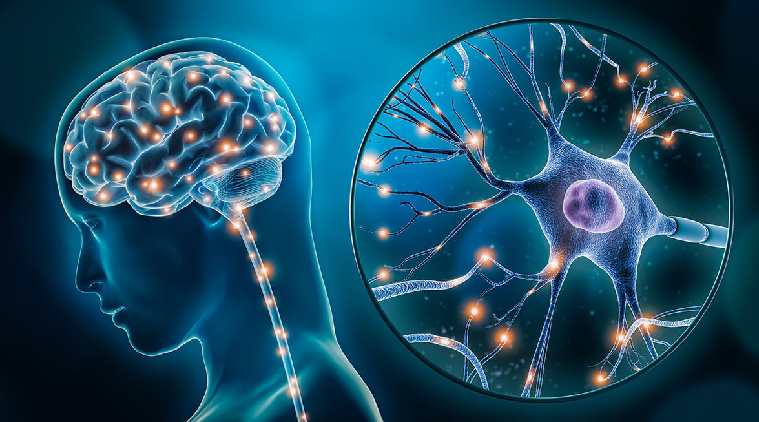How Yoga and Meditation Rewire Your Brain: The Science Behind Mindfulness

The Mind-Body Connection
In recent years, mindfulness practices like yoga and meditation have exploded in popularity, with people turning to these techniques not only for physical health but also to find mental clarity and reduce stress. Whether it’s the 5-minute meditation apps or yoga studios popping up in every neighborhood, there’s no denying that mindfulness has become mainstream. But beyond the immediate sense of calm and flexibility, these practices offer deeper benefits for the brain.
Yoga and meditation have been shown to physically alter brain structure through a process called neuroplasticity—the brain’s ability to form new neural connections. This means that regular mindfulness practices don’t just change how you feel in the moment; they rewire your brain over time, improving memory, emotional regulation, and focus. So while a yoga class might make you feel physically refreshed, it’s also laying the foundation for a healthier, more resilient brain.
Understanding Neuroplasticity: How the Brain Adapts
Neuroplasticity refers to the brain’s remarkable ability to reorganize itself by forming new neural connections throughout life. Every time we learn a new skill, break a habit, or face a challenge, the brain adapts. This adaptive quality allows it to recover from injuries, sharpen mental functions, and even rewire harmful patterns of thinking.
Mindfulness practices such as yoga and meditation capitalize on this plasticity. By focusing on breath, body movements, and staying present, these practices help strengthen areas of the brain responsible for memory, attention, and emotional regulation. Research has shown that regular meditation can physically increase the density of the hippocampus, the area of the brain linked to memory and learning.
In a study conducted at Harvard, participants who meditated for just eight weeks saw measurable changes in brain structure, including increased grey matter in regions associated with learning and memory. These findings suggest that mindfulness not only calms the mind but also enhances the brain’s ability to adapt and grow in ways that improve cognitive function and emotional health.
Mindfulness and Memory: Strengthening Cognitive Function
One of the most profound effects of meditation is its ability to improve working memory and focus. The prefrontal cortex, the area of the brain responsible for these functions, becomes stronger and more efficient with regular mindfulness practice. This is critical because the prefrontal cortex helps us stay present, make decisions, and manage information. When this area of the brain is well-developed, we’re better able to handle distractions and improve our cognitive performance.
Studies have shown that consistent meditation can increase the thickness of the prefrontal cortex, leading to sharper focus and enhanced attention span. This is why people who practice mindfulness often report that they experience fewer moments of mental fog or distraction during their day. They are better equipped to concentrate on tasks, stay on schedule, and make decisions with greater clarity.
For instance, someone who incorporates even 10 minutes of meditation into their morning routine might find themselves more focused and productive at work. Tasks that once felt overwhelming are now approached with calm and clear-headed determination. Mindfulness doesn’t just improve memory and focus on the mat; it helps you apply these mental gains to all areas of your life, from work to personal growth.
Emotional Regulation: Yoga’s Impact on the Amygdala
One of the most fascinating ways yoga and meditation affect the brain is by altering the size and activity of the amygdala, the part of the brain responsible for fear, stress, and emotional responses. In individuals who experience chronic stress or anxiety, the amygdala tends to be overactive, leading to heightened emotional reactivity. However, regular mindfulness practices have been shown to reduce the size of the amygdala, making the brain less reactive to stress triggers.
By shrinking the amygdala, yoga and meditation give you more control over your emotional responses, improving your ability to remain calm in challenging situations. This leads to better emotional regulation and resilience, allowing you to handle stress with grace rather than react impulsively. A calmer amygdala means that your brain is no longer in a constant state of “fight or flight,” freeing up mental energy for more productive tasks.
Research backs this up: a study conducted by Massachusetts General Hospital found that after an eight-week mindfulness program, participants had reduced amygdala activity, leading to lower levels of stress and anxiety. This shows that mindfulness doesn’t just create temporary relief from stress—it rewires the brain to respond to stress differently, promoting long-term emotional well-being.
By regularly practicing yoga and meditation, you can train your brain to stay calm, cool, and collected, even in the face of life’s inevitable challenges.
The Stress Response: Rewiring the Brain for Calm
Yoga and Pranayama (breathing exercises) play a significant role in calming the mind by activating the parasympathetic nervous system, the body’s “rest and digest” mode. When we’re stressed, the sympathetic nervous system—also known as the “fight or flight” response—dominates, flooding the body with cortisol and adrenaline. Over time, chronic stress can cause an overactive sympathetic response, leading to burnout, anxiety, and even physical health problems.
Deep breathing practices in yoga, particularly Pranayama, reverse this effect by slowing the heart rate and encouraging relaxation. Breathing exercises like Nadi Shodhana (alternate nostril breathing) or Ujjayi (ocean breath) stimulate the parasympathetic nervous system, lowering cortisol levels and promoting a state of calm.
A real-world example of mindfulness preventing burnout is seen in high-stress professions like healthcare and corporate environments. Studies show that employees who incorporate mindfulness practices like yoga and breathing exercises into their daily routine report lower levels of stress and greater emotional resilience. These practices retrain the brain to respond to stressful situations with calm, effectively rewiring it over time.
By consistently activating the body’s relaxation response, yoga and Pranayama enable you to manage stress more effectively, helping to prevent the long-term consequences of chronic stress and burnout.
Practical Tips: Incorporating Mindfulness into Daily Life
Incorporating mindfulness into your daily routine doesn’t have to be complicated. Even a few minutes of yoga or meditation can make a big difference in your overall well-being. Here are some simple ways to integrate mindfulness into your day:
- Morning Routine: Start your day with a 5-minute meditation or gentle yoga stretches to set a calm and focused tone. Try simple stretches like Cat-Cow Pose or Seated Forward Bend to awaken the body.
- Mindful Breathing: Practice deep breathing exercises like Box Breathing or Nadi Shodhana during a lunch break or whenever you feel stressed.
- 5-Minute Meditations: Use short guided meditation apps like Headspace, Calm, or Insight Timer to practice mindfulness whenever you have a free moment.
These small, consistent habits can have cumulative benefits. Over time, even brief mindfulness practices can help rewire your brain to handle stress more calmly, improve focus, and enhance emotional regulation. The key is consistency—making mindfulness a natural part of your everyday life.
The Transformative Power of Mindfulness
Yoga and meditation do more than just relax the body; they physically change the brain in profound ways. By strengthening memory, improving emotional regulation, and rewiring the brain’s response to stress, mindfulness practices offer long-term mental and emotional benefits. They reduce cortisol levels, shrink the amygdala, and improve cognitive function, helping you handle life’s challenges with greater clarity and calm.
Incorporating even a few minutes of yoga or meditation into your daily routine can create lasting positive changes. Whether it’s through deep breathing exercises, mindful stretches, or guided meditation, the cumulative effects of mindfulness practices can transform both your mind and body.
Experiment with these techniques and experience the profound benefits of yoga and meditation firsthand. The more consistently you practice, the more your brain will adapt to a healthier, calmer way of being.



